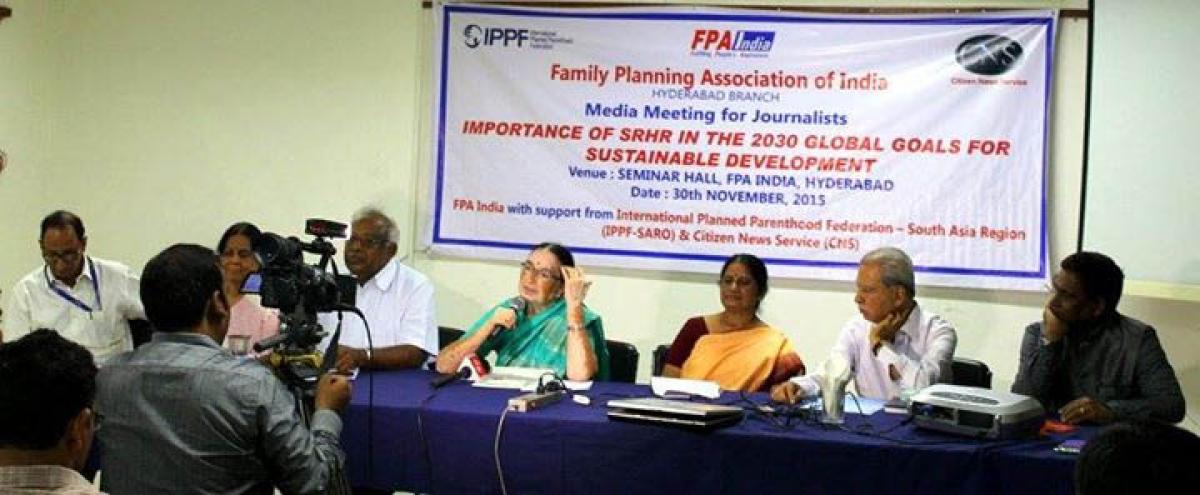Live
- GHMC wakes up from slumber, out to tame stray dog menace
- Victoria Kjaer Theilvig: Denmark’s First Miss Universe Winner Makes History
- Health minister for action against ragging offenders
- HMWSSB lays focus on commercial buildings to fix sewage problem
- Rich tributes paid to Ramamurthy Naidu
- Denmark’s Victoria Crowned Miss Universe
- Vaishnaw flags 4 major challenges faced by news media
- TGCHE looks for a 360-degree ‘Look-in-India’ model
- High priority to strategic partnership with Nigeria
- TG govt scraps road tax, registration fee on EVs
Just In
Gender justice is integral to sustainable development in Telangana and Andhra Pradesh


2030 Sustainable Development Goals (SDGs) agreed by governments including that of India in September 2015, have extreme significance in accelerating progress on sexual and reproductive health and rights (SRHR) in Andhra Pradesh and Telangana.
2030 Sustainable Development Goals (SDGs) agreed by governments including that of India in September 2015, have extreme significance in accelerating progress on sexual and reproductive health and rights (SRHR) in Andhra Pradesh and Telangana.

In a briefing meeting organized by Family Planning Association of India (FPA India)’s Hyderabad Branch, International Planned Parenthood Federation (IPPF)’ South Asia Region Office and Citizen News Service (CNS) in Hyderabad on Monday, 30th November, it was stressed that SRHR cuts across the three dimensions of 2030 SDGs – economic, social and environmental. There is a strong connect between the global sustainable development goals and SRHR, in so much as the latter are critical to reducing poverty and hunger; achieving better health; accessing quality education by women/girls; ensuring gender equality; and empowering women and girls, said Dr P Balamba, President of FPA India’s Hyderabad Branch.
.jpg)

© 2024 Hyderabad Media House Limited/The Hans India. All rights reserved. Powered by hocalwire.com






